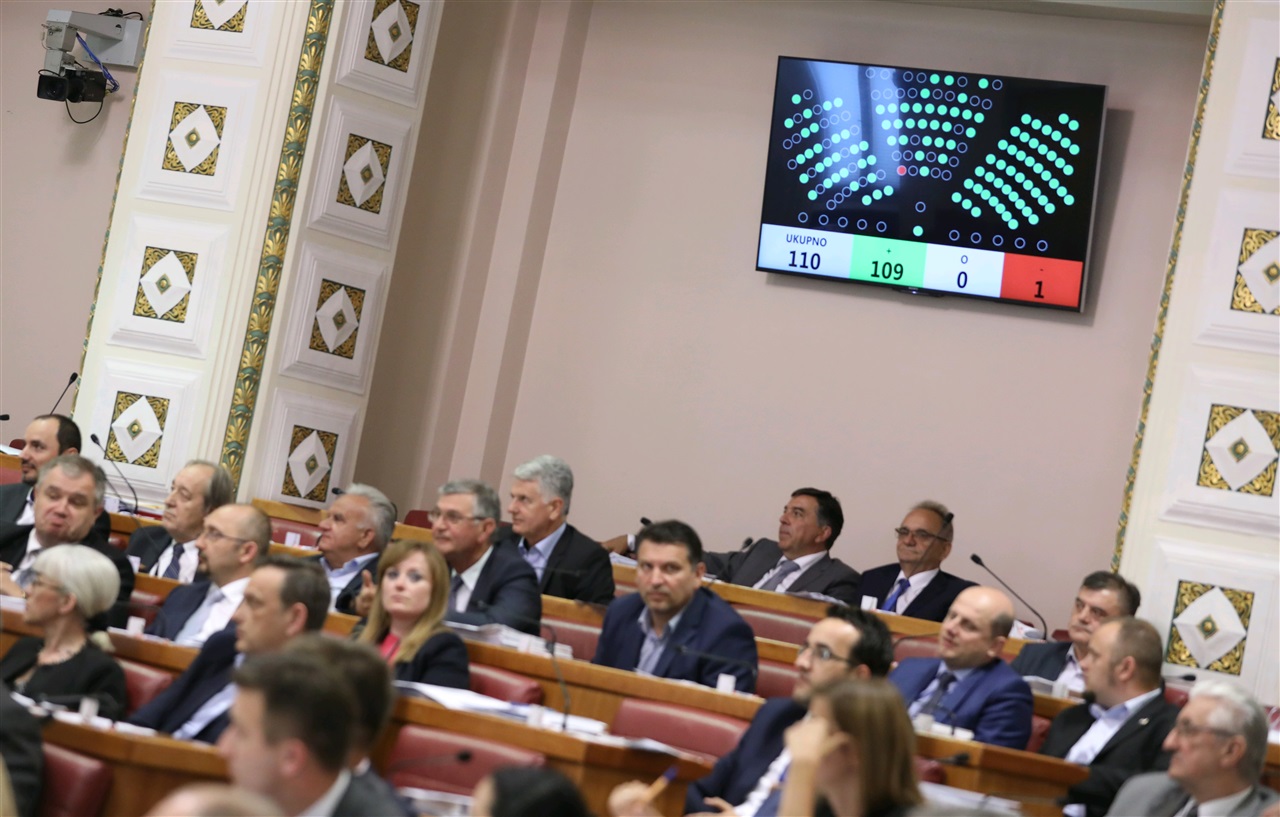
Zagreb - In the last 20 years Croatia has spent nearly 5.5 billion kuna (743 million euros) on mine clearance operations, and 595 people have been injured by mine explosions since the end of the 1991-1995 war, including 203 fatally, the Croatian parliament was told on Friday.
At the start of last year, 447 square kilometres of land spreading across nine counties was still contaminated with unexploded ordnance left over from the Homeland War, Žarko Katić, state secretary at the Ministry of the Interior, said while presenting a report on the implementation of the mine action plan in 2017.
2017 was the first year in which no mine-related casualties were reported.
The mine action plan for last year was not carried out, given that of the 58.3 square kilometres planned 36.5 square kilometres was cleared of mines and of the 505 million kuna (68.2 million euros) allocated 347 million kuna (47 million euros) was spent, Katić said, adding that a delay in mine removal operations and a change in the method of calculation of the land cleared were some of the reasons.
Some 405 square kilometres of land still remains to be cleared, and since it will not be possible to complete this task by 1 March 2019, the government has proposed extending the deadline by seven years, to 1 March 2026.
The parliamentary opposition was not happy with the pace and efficiency of the mine clearance process. "Each year more and more money is spent, less and less land is cleared and fewer and fewer mines are detected, last year only 1,300," Branimir Bunjac of the Human Shield party said. Bunjac said that some African countries were far more efficient in mine clearance than Croatia even though they were not as rich as Croatia. He said that it had taken Mozambique 20 years to clear the land of mines, adding that if Croatia continued at the present rate it would take it 150 years to do so.
Ranko Ostojić of the Social Democratic Party (SDP) said that it would take 13 years for Croatia to become free of unexploded mines, provided that it received EU funding for this purpose. Otherwise this process will last who knows how many years, he added.
Vesna Pusić of the Civic Liberal Alliance (GLAS) noted that it was difficult to maintain the quality of demining services given that 40 different companies had been engaged in mine clearance operations last year.